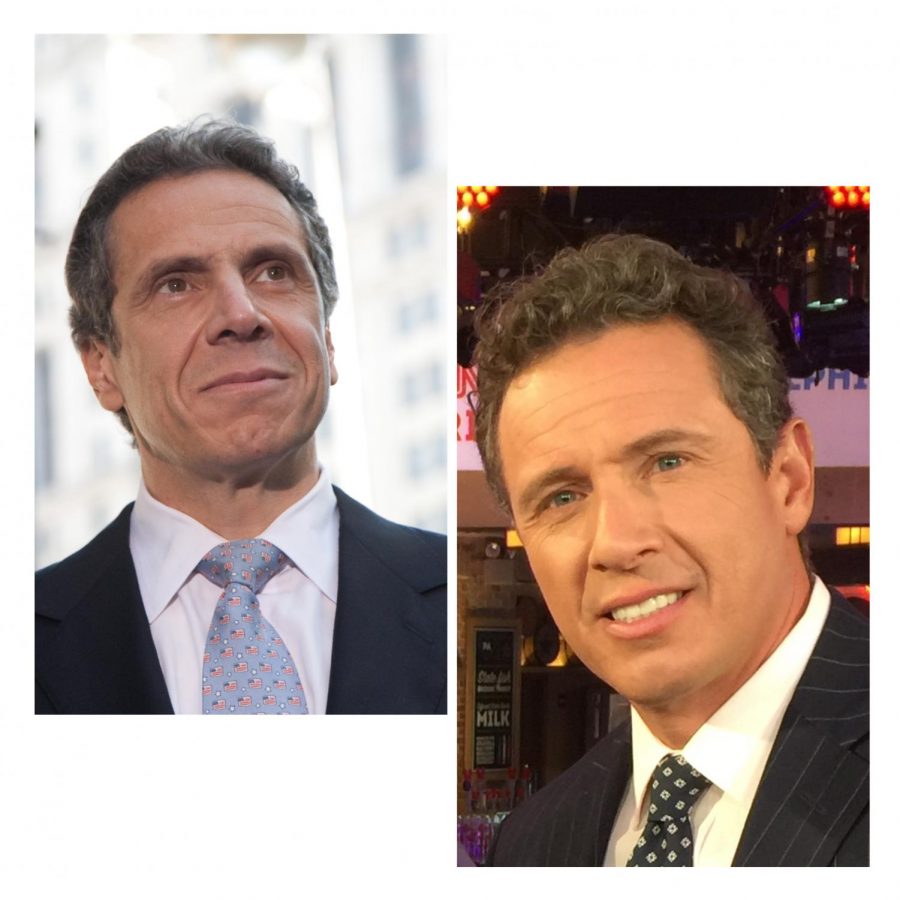Whether outwardly or behind closed doors, abuse of power is an ongoing issue across professions in today’s society. While any type of corruption by those in power leaves a bad taste in the mouths of the masses, some abuses sting worse than others. Such was the case with the recent scandal involving former CNN anchor Chris Cuomo and his brother, former New York Gov. Andrew Cuomo.
Since December of last year and into 2021, sexual assault allegations against Andrew Cuomo have surmounted. With calls to resign putting his brother’s political career in jeopardy, Chris Cuomo was revealed to have played a role in helping his brother deal with the scandal by participating in calls with aides and discouraging his brother from resigning in May. After this incident, Chris Cuomo publicly apologized, and acknowledging the anchor’s unique position as a reporter with a clear conflict of interest, CNN offered no punishment.
Fast forward to Aug. 10, 2021, and Gov. Andrew Cuomo announced his resignation. On Nov. 22, the New York State Assembly Judiciary Committee released the findings of its investigation, ultimately determining that the former governor had engaged in sexual misconduct and created a hostile work environment. But the scandal was far from over.
On Nov. 30, the former governor’s brother Chris Cuomo was indefinitely suspended from CNN after stunning messages between him and journalist Ronan Farrow and one of Andrew Cuomo’s former top aides, Melissa DeRosa, were released.
Emma Bowman of NPR reported, “In one message from March, the CNN host asked Melissa DeRosa, then a top aide to the New York governor, to ‘please let me help with the prep’ for his brother’s defense. Chris Cuomo also admitted that he’d attempted to learn more about an upcoming story by journalist Ronan Farrow involving an accuser. Transcripts show Cuomo feeding DeRosa updates regarding Farrow’s investigative story.”
While scrambling for their dignities and pondering the future of their careers, the Cuomo brothers have implicitly reminded the masses of the dangers of idolizing people in power. With Chris Cuomo being one of CNN’s most popular anchors and Andrew Cuomo being praised by Democrats during the peak of the pandemic for his leadership, such scandal seemed unforeseeable.
But maybe Americans are just naïve.
Buying their merch and ceaselessly defending them across social media platforms, Americans have a track record of idolizing people in power. From former President Donald Trump for the right to New York Rep. Alexandria-Ocasio Cortez (AOC) for the left, Americans have continuously chosen leaders to paint as heroes. The Cuomo brothers are no exception.
As the brothers have proven, with power comes disconnection – and that disconnection breeds corruption. In the case of Chris Cuomo, his large-scale success as a news anchor disconnected him from his audience and the ethical code of his profession, causing him to attempt to manipulate news for familial gain. The praise Andrew Cuomo received for his efforts during the pandemic paired with his status as the governor of New York enabled him to corrupt his work environment. With these brothers feeding off of their respective combinations of fame, money and success, it is possible that it was just a matter of time until they used their power for personal gain.
So is there any hope? Can we ever be optimistic about people in positions of power? Maybe – but likely only cautiously so.
Democratic staffer and PV alum Sam Lundry has witnessed idolization of politicians and its detrimental effects firsthand. “I think it’s certainly acceptable to look up to public officials and those who serve our communities honorably, but we should be careful about putting those we don’t know personally on a pedestal,” he said.
Lundry continued, “Individuals, and especially those with political power to do something about abuse, need to treat public figures as they would everyday people, and in many cases need to hold elected officials to a higher standard,” he said. “Abuse or harassment in the workplace or outside it is unacceptable, especially for those we entrust to make our laws, run our government, represent our country, and serve as role models for the next generation.”
When people idolize those in power, they feed into their ability to abuse it. Glossing over questionable behavior, people do not want to believe those they admire are capable of doing any wrong. But it is this infatuation that enables the abuse.
This is precisely why it is so critical that people are skeptical of those in power whom they hold in high regard. Not only does it spare individuals from becoming completely disillusioned with those in power, but it also helps hold these leaders accountable.
Perhaps our criticism can serve as leaders’ encouragement to be better.









